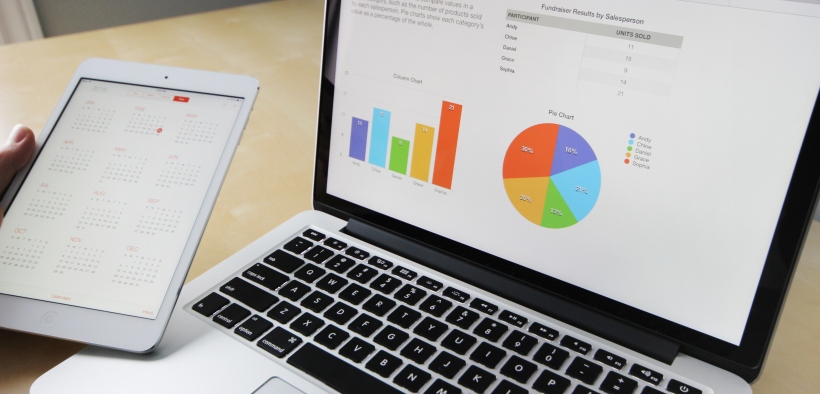Tips For Navigating The Cost of Living Crisis
Share

A cost of living crisis can be an extremely scary time for many people as a result of the uncertainty of the economy and increasing costs. However, we’re here with some really simple things you can do to take the pressure off your finances and to help you navigate this difficult time. Even if the country you live in isn’t suffering from a cost of living crisis, these are really handy tips to help you take control of your finances. So, let’s get started, whether you’re a college student saving money or someone preparing for retirement!
Be Realistic About Where You Are Financially
The first step is really important, which is to be realistic about where you are financially. Look at all of your bank accounts and also any other accounts where you owe money, perhaps catalog debt or other store credit cards. Add up how much you owe across all of your accounts and also how much money you have in the positive accounts. From here, you will realistically see how much money you have and how much you owe, to help you create a detailed plan to take control moving forwards. This might mean you need to take action if your debt is unmanageable, such as apply for an IVA, you might need help from a financial advisor or you might be able to set money aside each month to repay your debt on your own. Remember to take interest into account, as this is what often makes debts hard to repay.
Create A Bulletproof Budget!
Now you know how much money you have, and how much you need to repay, you need to create a bulletproof budget.
Start by mapping out all of your essential spending, things like rent, bills, insurance, basic food shops, medicine, debt repayments, essential clothing and so on. Then, make a list of your non-essential spending, such as savings, holidays, going out, other clothing, luxury toiletries, etc. When you first map these things out, put down how much ideally you want to spend, as we will get onto cutting back later down the line.
From here, create a budget spreadsheet that tallies up all of your spending, then create a row for your incomes. Again, utilise the spreadsheet formulas and do your incomes minus your outcomes each month.
For example, say you earn £1,600 a month. If your outgoings are £1,800, the spreadsheet will show you are £200 short for the month and you need to cut back. From here, you can make adjustments and the spreadsheet will automatically update so you know when you are on track. If you’re at a positive at the end of the month, then we’d definitely advise either paying off more of your debt or starting savings, whether for a house or your retirement if you already have a property.
Identify Where You Can Cut Back
Now you know you need to cut back, we’ve got some great examples of how you can do it! Some of these tips will make quite a significant difference, whilst others are smaller that will all add up to also make a big difference overall!
Automatic Renewals
First up, make a note of all of your bills that automatically renew. When you just let a contract roll over, often they will send an email that you might miss saying the price is increasing. This is really common for all types of insurance (so be wary about your home and car insurance), things like your TV, internet, phone contract, water bills, energy bills, and so on. So, go through and note when all of these things next renew, and put a reminder on the calendar to give them a call the week before they renew.
Before you call, have a look around and see what other companies are offering for the same service. Even if you have no intention of changing companies, this is so important as it’s mostly what helps you get the price down. Then, when you’re on the phone, explain that the prices are no longer competitive in terms of what’s on the market and you’re thinking of leaving. Much more often than not, they’ll panic about losing a customer and do everything they can to keep you. This might be offering the same deal that new customers are getting or just another discount.
You might save £5, £10, £20 or more a month, depending on what it is, then when you do this for 10 different things, it adds up extremely quickly. This will make a huge difference to your finances across the year.
Energy Bills
Energy bills are famously one of the most dramatic increases in terms of the cost of living crisis, particularly in the UK. For some people, bills are increasing by 2, 3 or 4 times, which is catastrophic. So, there are some important things you can do to help decrease the cost of your bills.
Firstly, start doing all of your washing at 30 degrees. When you do a few washes a week, this will save quite a lot of energy across the year. Reducing other things like only putting your heating on when you absolutely need it and having it on a timer are also important. If you can reduce the temperature of anything in your home, do it!
When you’re planning your meals for the week (we will get onto this more), try to plan batch cook meals using as few appliances as possible. So, if you could make a large batch of chilli and then use microwave rice, this will be much more energy efficient than running the hob, oven and microwave.
There are also the standard things, like swapping to energy efficient light bulbs and turning the lights off when you leave a room, along with turning everything off standby and reducing your water usage, but we’re sure you probably know all of these already!
Food Shop
Lastly, your food shop is a great place to save money!
Our best tip is to sit down before you go food shopping and plan out what you’re going to eat for each meal. You can plan out a wide range of healthy foods so you know you’re eating a balanced diet which is a benefit in itself, but this also means that you can write a very clear list of everything you need, so you don’t end up buying lots you don’t need.
When you’re planning your food shop, as mentioned above, try to bulk make your meals where you can. With things like pasta dishes, curries and chillies, try replacing some of the meat with another protein source like beans. So, instead of putting 500g of chicken in a curry for your family, put in 200g and then add lentils. Or, with your chilli, instead of 500g of beef mince, use 200g and then add a tin of black beans and a tin of kidney beans. This can seriously slice down the cost of your food shop!
Another thing that can really transform your food shop is to choose supermarket own brands. Branded products are so expensive these days, for example you might pay £1 for a tin of branded beans, but supermarket own will be 50p. There are so many examples like this, so if you do this for every product, you have the potential to halve the cost of your food shop.









